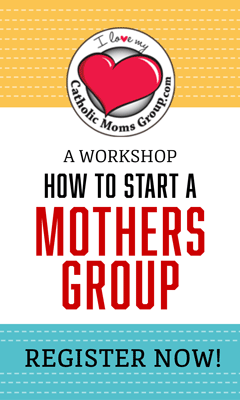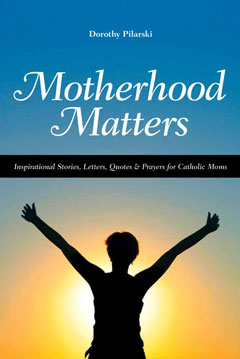Whenever a suicide strikes a community, everyone is shaken.
And yes, the news of the suicide of Rick Warren’s twenty-seven-year-old son, Matthew, was also very tragic. Rick  Warren is a famed Evangelical Christian pastor, a popular speaker, and the celebrated author of The Purpose Driven Life. In his statement to his congregation at the Saddleback Church in Orange County, California, Pastor Rick wrote: Matthew suffered “from birth with mental illness, dark holes of depression, even suicidal thoughts.” Only those closest to the family knew of the pain and the many unsuccessful attempts at treating his mental illness. In a pit of despair that descended after “a fun evening together” Matthew died of a self-inflicted gunshot wound.
Warren is a famed Evangelical Christian pastor, a popular speaker, and the celebrated author of The Purpose Driven Life. In his statement to his congregation at the Saddleback Church in Orange County, California, Pastor Rick wrote: Matthew suffered “from birth with mental illness, dark holes of depression, even suicidal thoughts.” Only those closest to the family knew of the pain and the many unsuccessful attempts at treating his mental illness. In a pit of despair that descended after “a fun evening together” Matthew died of a self-inflicted gunshot wound.
Substance abuse. Addiction. Mental illness. It happens, not just to “those” families but to our families. Good Christian families. Devout Catholic families. Mental illness doesn’t discriminate and a crucifix hanging in the living room doesn’t guarantee immunity.
Here are some statistics from the Centre for Addiction and Mental Health (CAMH) in Toronto, Canada:
- 1 in 5 Canadians will experience a mental illness in their lifetime. The remaining 4 will have a friend, family member, or colleague who will.
- 70% of mental health problems have their onset during childhood or adolescence. Young people between the ages of fifteen and twenty-four are more likely to report mental illness and/or substance abuse disorders than other age groups.
- Men are 2.6 times more likely than women to meet the criteria for substance dependence.
- Women are 1.5 times more likely to experience anxiety or mood disorders.
The stigma of mental illness remains prevalent in society. We don’t understand it; therefore, we’re afraid and are ashamed of it. According to CAMH:
- 50% of Canadians would tell their friends or co-workers they have a family member with mental illness, compared to 72% who would discuss diagnoses of cancer or 68% who would discuss diabetes in the family.
- 49% of people say they would socialize with a friend who has a serious mental illness.
- 46% think that the term mental illness is an excuse for bad behaviour.
- 27% are afraid of being around people with serious mental illness.
Just as ignoring symptoms of physical illness is harmful, so is discounting the signs of mental illness in our families, especially in our children. The worst thing a parent can do is make excuses. She’ll outgrow it. Boys will be boys. They’re just kids.
Growing up in my extended family, a case of mental illness was kept hidden. Things like that just didn’t happen to good Catholic families so the illness was covered up. Even now, the disastrous results of shame and denial continue to manifest negative effects. Confronting the situation years ago may not have completely resolved the problem but early treatment might have lessened the severity.
In the Catholic Church, we have our share of saints who, in present day, would be considered mentally ill:
- Venerable Matt Talbot (1856-1925) began drinking at the age of twelve. Sixteen years later, with the help of a priest friend, he was able to control his drinking. The rehab program given to him by his priest friend was later incorporated into the Twelve Step Program for alcoholics. “Never look down on a man who cannot give up the drink,” he told his sister. “It is easier to get out of hell.” He may one day be the patron saint of addicts.
- St. Benedict Joseph Labre (1748-1783) preferred a life of homelessness. Biographers believe that his mental illness was cured but he continued to live as a homeless beggar traveling to places that offered forty-hour Devotion to the Holy Eucharist. He is the patron saint of the homeless, mental illness, and Eucharistic Adoration.
- St. Camillus de Lellis (1550-1614) who founded the Congregation of the Ministers of the Sick was addicted to gambling. He is the patron saint of nurses, the sick and hospitals. The modern Red Cross symbol is attributed to him.
- St. Augustine tells us that as a young girl, his mother, St. Monica had “a weakness for wine [that] gradually got a grip upon her.” She overcame it after being accused by a servant girl of being a “boozer.”
What can we do if we suspect that someone we love is showing the signs of addiction and other mental illness?
- Pray for strength, wisdom, guidance, mercy. Thy Will be done. Seek medical attention for the afflicted person. Your family physician is a good resource.
- Educate yourself about the specific mental illness.
- As a family, give unfailing support, love and dignity to the person who is suffering but do not deny the fact that they are ill. Talk to them about it.
- Seek your own lifeline—your Simon of Cyrene. You don’t have to tell everyone what’s going on, but confide in trusted friends, family, a parish priest, or spiritual director. This is a cross that you cannot carry on your own.
Blessed John Paul II, in his address to the International Conference for Health Care Workers, on Illnesses of the Human Mind, 30 November 1997, stated:
The Church reminds the political community of its duty to recognize and celebrate the divine image of man with actions that support and serve all those who find themselves in a condition of severe mental illness. This is a task which science and faith, medicine and pastoral care, professional skill and a sense of common brotherhood must help to carry out through an investment of adequate human, scientific and socio-economic resources.
Whoever suffers from mental illness ‘always’ bears God’s image and likeness in himself, as does every human being. In addition, he ‘always’ has the inalienable right not only to be considered as an image of God and therefore as a person, but also to be treated as such.
It is everyone’s duty to make an active response; our actions must show that mental illness does not create insurmountable distances, nor prevent relations of true Christian charity with those who are its victims. Indeed it should inspire a particularly attentive attitude.
Terry McDermott is the mom of eight children, most of whom are old enough to vote. She is a registered nurse and the owner of a nursing – related small business. She teaches Catechism Class to her parish’s First Communion candidates. Terry writes for Catholic Insight Magazine, is a columnist at CatholicMom.com. Visit her blog, 8kidsandabusiness.com



